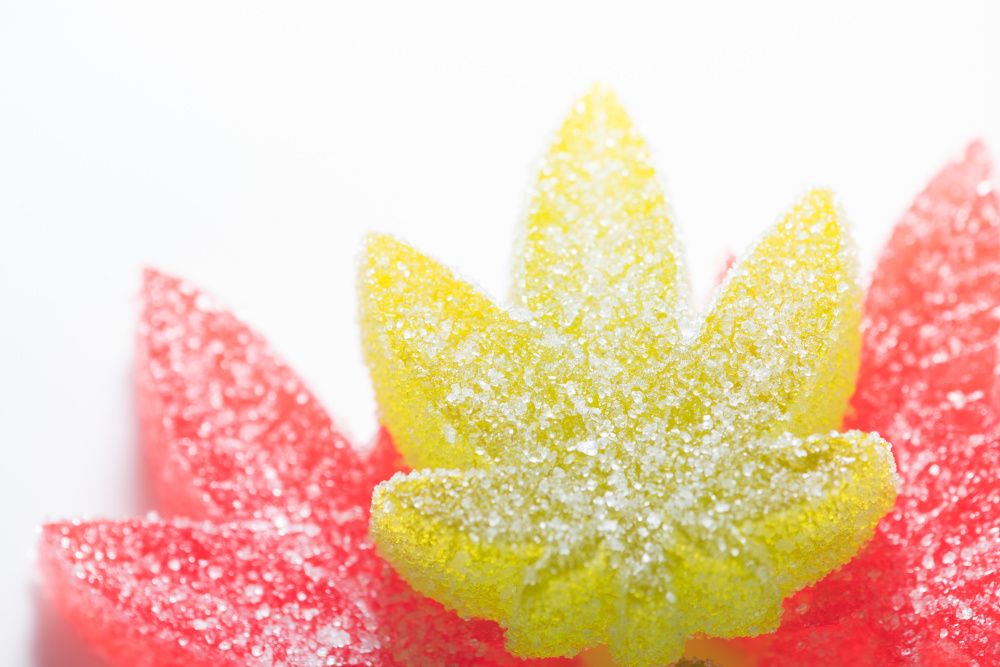How should consumers use CBD?
With so much still unknown about CBD, and with so much product variability in the market, it is exceedingly important that consumers be very aware of the products they are using and how much they need to use to suit their health needs.
Photo © AdobeStock.com/Matthew

Not so long ago, most of us weren’t able to tell you what the CBD acronym stood for, let alone how to use CBD or what to use it for. This is mostly attributed to the fact that cannabidiol (CBD) is often confused with tetrahydrocannabinol (THC), its trippy chemical cousin, and has been assumed to produce a psychoactive high the way THC does. With time, people have learned that the two compounds, though extracted from the same plant, are actually different. CBD is a non-psychoactive compound that has a plethora of benefits for human health.
CBD celebrity believers like Willie Nelson and Gwyneth Paltrow have raised the cannabinoid’s profile, and you will find CBD in tinctures, vaping oils, and ointments almost everywhere. With all the hype around CBD, consumers might find themselves wanting to test whether CBD can actually positively impact such conditions as anxiety, depression, and insomnia, among others.
To date, the FDA has only approved one CBD-derived drug, Epidiolex, for pediatric seizures. Rigorous clinical trials would be required to get CBD approved for other conditions—and despite how popular CBD gets by the day, the research supporting the compound’s other purported health benefit claims is still not conclusive.
Keith J. Myers

Several studies have found CBD to be safe; however, being deemed safe is totally different from being demonstrated to be effective, and CBD’s effectiveness is yet to be proven in human clinical trials. Outside of the Epidiolex studies, there have only been a limited number of published randomized clinical trials on CBD, with the largest being a 24-person trial.1
With so much still unknown, it is exceedingly important that consumers be very aware of the products they are using and how much they need to use to suit their health needs. This is especially crucial because to date, only a limited number of states have outlined regulations for labeling of CBD oil products.
With limited regulation of CBD oil products, consumers should be very skeptical. Consumers should always do their best to find out the source of the CBD oil and to make sure there are no heavy metals or other contaminants in the oil; unfortunately, people who buy CBD oil on Amazon or from their local food store tend to work without a safety net. A 2017 study found that nearly 70% of CBD products tested by researchers were mislabeled.2 This means that even with access to third-party results online, consumers could still be using a less-efficient product, one that won’t maximize results.
Consumers could also be using a product with more CBD or THC than what is indicated on the label. CBD products containing high THC levels could leave the consumer impaired or intoxicated—and the last thing someone wants to do is inadvertently drive under the influence, experience several negative consequences ranging from anxiety to cognitive impairment, test positive on a workplace drug screen, or risk psychosis when on a high dose.
How to Bring about High Health Efficiency with CBD
The recommended serving size on most CBD tincture bottles is often 1 ml/day. Consumers should be aware that FDA doesn’t allow CBD manufacturers to make marketing claims such as recommended doses and that the doses manufacturers do recommend are not standardized. CBD products come in different potencies.
To get the most out of CBD oil products, we recommend consumers find the batch number on the product bottle and call the manufacturer to verify precisely what is in the product. Companies are expected to give you these details; failure to do so means consumers should ditch the product because they can’t be sure of its purity. If so desired, people can also find a testing lab that will help confirm there are no heavy metals in a product. Reputable brands will be honest and open about sharing their lab analyses, and a consumer should feel free to request results before using the product.
Beware of Side Effects
CBD products on the market are not all the same, and you can opt for one or several ways of using CBD. You may also notice side effects3 such as:
- Changes in appetite and weight
- Fatigue
- Diarrhea
CBD can also interact with other medications, so consumers should talk with their doctor before using CBD oil to ensure their safety and to avoid harmful interactions. There is still much to be learned about CBD’s safety and efficacy, and consumers need to make sure they follow best practices to ensure they have the best chance of reaping any powerful natural relief benefits CBD may offer.
About the Author
Keith J. Myers is the founder and editor-in-chief of Health Canal (www.healthcanal.com). He has overseen and directed the editorial growth of this website since 2012. Before creating Health Canal, Keith was a writer and editor who covered topics including CBD, health, science, and wellness. His personal commitment to helping people naturally and safely improve their health has driven Health Canal’s commitment to quality and consumer transparency.
References
- Bergamaschi MM et al. “Cannabidiol reduces the anxiety induced by simulated public speaking in treatment-naïve social phobia patients.” Neuropsychopharmacology, vol. 36, no. 6 (May 2011): 1219-1226
- Bonn-Miller MO et al. “Labeling accuracy of cannabidiol extracts sold online.” Journal of the American Medical Association, vol. 318, no. 17 (2017): 1708-1709
- Myers K. “Possible side effects of CBD oil & drug interaction.” Health Canal. Published online August 5, 2020.